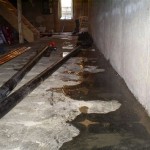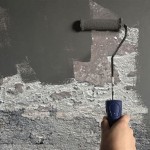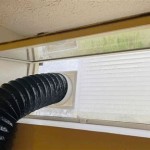Drain Backing Up In Basement: Essential Aspects to Consider
A drain backing up in your basement can be a major inconvenience, and it can also be a sign of a more serious problem. If you're dealing with this issue, it's important to understand the causes and potential solutions. In this article, we'll discuss the essential aspects of drain backing up in basements, including common causes, preventive measures, and professional help options.
Common Causes of Drain Backup in Basements
- Clogs: This is the most common cause of drain backup. Debris such as hair, soap scum, grease, and food particles can accumulate in your drains over time, eventually blocking the flow of water.
- Tree Roots: Tree roots can infiltrate sewer lines and cause blockages. As the roots grow, they can wrap around and crush the pipes, restricting water flow.
- Collapsed Drains: If your drains are old or damaged, they can collapse under pressure. This can create blockages and prevent water from draining properly.
- Frozen Drains: In cold climates, drains can freeze and cause backup. This is especially common if the drains are exposed to cold air or if there is insufficient insulation around the pipes.
- Improper Grading: If your basement floor is not properly graded, water may not flow towards the drain. This can lead to standing water and eventually drain backup.
Preventive Measures to Avoid Drain Backup
- Regular Cleaning: Regularly clean your drains to prevent clogs. Use a drain cleaner or a baking soda and vinegar solution to remove buildup.
- Install Drain Guards: Drain guards can prevent hair and other debris from entering your drains. They are available in a variety of sizes and shapes to fit different drains.
- Trim Tree Roots: Trim tree roots that are growing near your sewer lines. This can prevent them from infiltrating the pipes and causing blockages.
- Insulate Drains: Insulate exposed drains to prevent them from freezing in cold climates.
- Check Grading: Ensure that your basement floor is properly graded to allow water to flow towards the drain.
Professional Help for Drain Backup
If you're unable to clear the drain backup on your own, it's important to call a professional plumber. They have the experience and equipment to diagnose the problem and implement the proper solution. Common professional solutions include:
- Drain Cleaning: Using specialized equipment, plumbers can clear clogs from your drains.
- Hydro Jetting: This high-pressure water cleaning method can remove tough blockages and tree roots from your drains.
- Pipe Repair or Replacement: If your drains are damaged or collapsed, plumbers can repair or replace them to restore proper drainage.
- Sewer Line Inspection: A sewer line inspection can identify problems with your sewer line, such as cracks, leaks, or blockages.
Conclusion
Drain backup in basements can be a frustrating problem, but it can be resolved by understanding the causes and implementing preventive measures. If you're unable to clear the backup on your own, don't hesitate to call a professional plumber for assistance. By taking these steps, you can ensure that your drains are functioning properly and prevent future backups.

Why Does My Floor Drain Back Up Structure Tech Home Inspections

Basement Drain Backing Up Here S What To Do Right Now Servicemaster

How Do You Unclog A Basement Floor Drain Atlanta Ga Plumbers

How To Troubleshoot Sewer Line Problems Pipe Spy Lateral Experts Oakland And East Bay

Basement Drain Backing Up In Winter Top Causes Solutions

Why Is My Floor Drain Backing Up Code Blue Plumbing

How To Stop Water From Coming Up Through The Basement Floor

Basement Drain Back Up 1 Minute Of Cause Cures Youtube

Why Is My Basement Drain Backing Up Edmonton Drainage Experts Peak Sewer Underground

How To Install A Floor Drain Backflow Preventer Family Handyman







